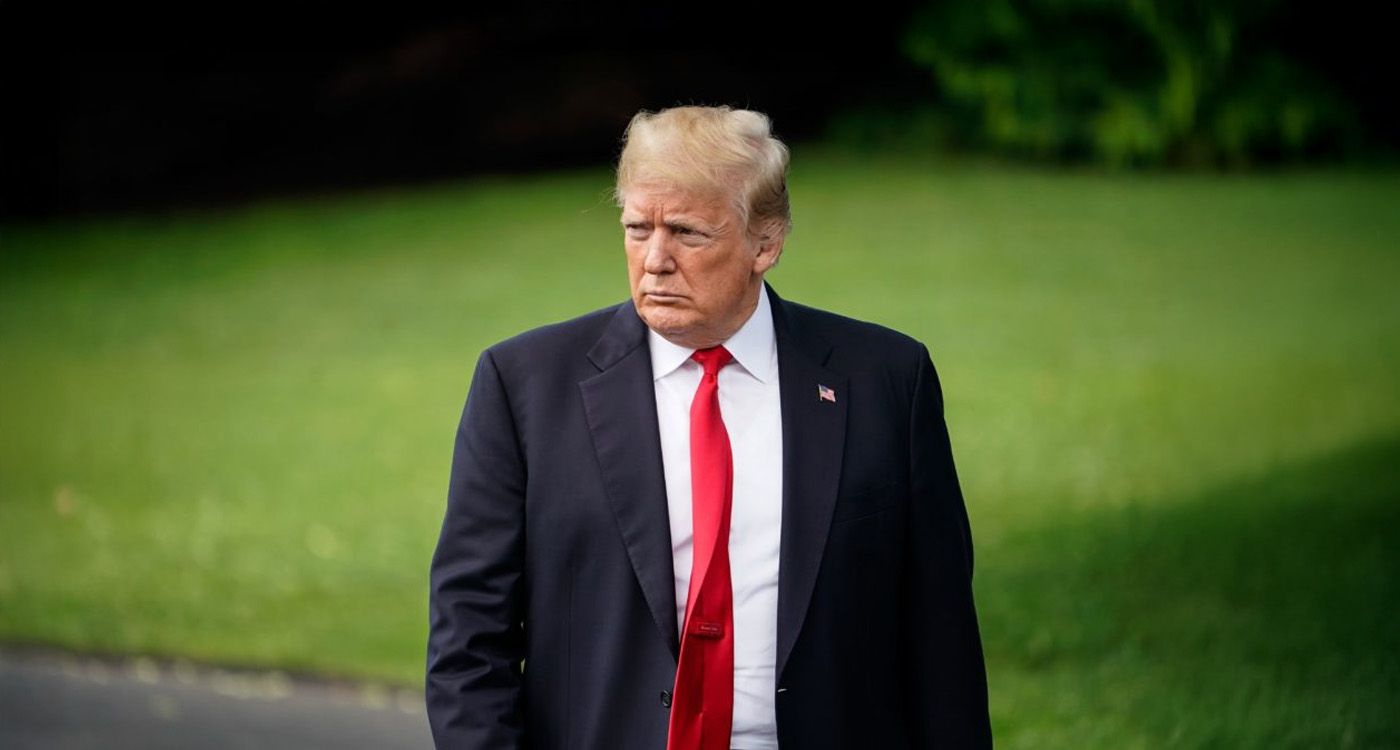- Home
- Middle East
- Trump's Bold Agenda: A Call for Total Dismantlement of Iran's Nuclear Program

©AFP
Discussions are ongoing in Washington about how to address the potential consequences of a nuclear-capable Iran. President Donald Trump has taken a firm stance, advocating for the complete dismantlement of Iran's nuclear ambitions, asserting that this approach is vital for maintaining international security. In a recent "Meet the Press" interview, Trump emphasized, "I want Iran to be really successful." "The only thing they can't have is a nuclear weapon," he added. He further emphasized, "I just don't want them to have a nuclear weapon because the world will be destroyed."
Trump's hardline stance echoes sentiments shared by a growing contingent of U.S. lawmakers, including Senator Lindsey Graham. Graham has firmly warned against any attempts to compromise, stating, "The alternative—a half-measure agreement—cannot adequately safeguard against Iran's long-term ambitions. It might well embolden the regime to continue its malign activities." His remarks underscore a prevailing belief among critics that even limited allowances for uranium enrichment could set a dangerous precedent.
The backdrop of Iran's past negotiations looms large as key figures debate the future of diplomatic efforts. Proponents of a "compromise" argue for allowances akin to those in the previous Obama-era agreement, allowing Iran to engage in limited uranium enrichment. However, critics caution that such concessions could bring Iran dangerously close to achieving nuclear breakout capabilities. They point to Iran's history of supporting militant groups such as Hezbollah and its hostile rhetoric towards the West as signs that the regime's aspirations transcend mere civilian energy development.
In this charged atmosphere, the U.S. government faces a critical choice: to adopt a firm, unwavering stance or to entertain negotiations that could ultimately lead to difficult compromises.
Secretary of State Marco Rubio has articulated a cautious yet pragmatic approach to the situation. He maintains that while a peaceful civilian nuclear energy program is acceptable, Iran's nuclear enrichment capabilities must be dismantled entirely. "We must ensure that Iran does not enrich uranium," Rubio stated. He proposes that Iran could access low-enriched uranium for civilian energy needs through international imports, a method already employed by several nations.
The fear that a nuclear-armed Iran could catalyze an arms race in the Middle East is not unfounded. In addition, the notion that diplomatic agreements could keep Iran's ambitions in check is characterized by many as an "exercise in naïveté." Iran has continued to advance its nuclear capabilities, often under the pretense of compliance. Reports of increased uranium enrichment activity have raised red flags, signaling a potential manipulation of negotiations to gain further concessions while pursuing its nuclear agenda.
The current economic difficulties faced by Iran provide a rare opportunity for the international community to apply significant pressure for meaningful disarmament. Heightened sanctions and internal discontent have left the regime vulnerable, creating an opening for the U.S. to leverage these weaknesses. As Washington grapples with its next steps, the clarity and firmness of the U.S. position regarding Iran's nuclear program will be paramount in navigating this complex geopolitical landscape.
Read more




Comments